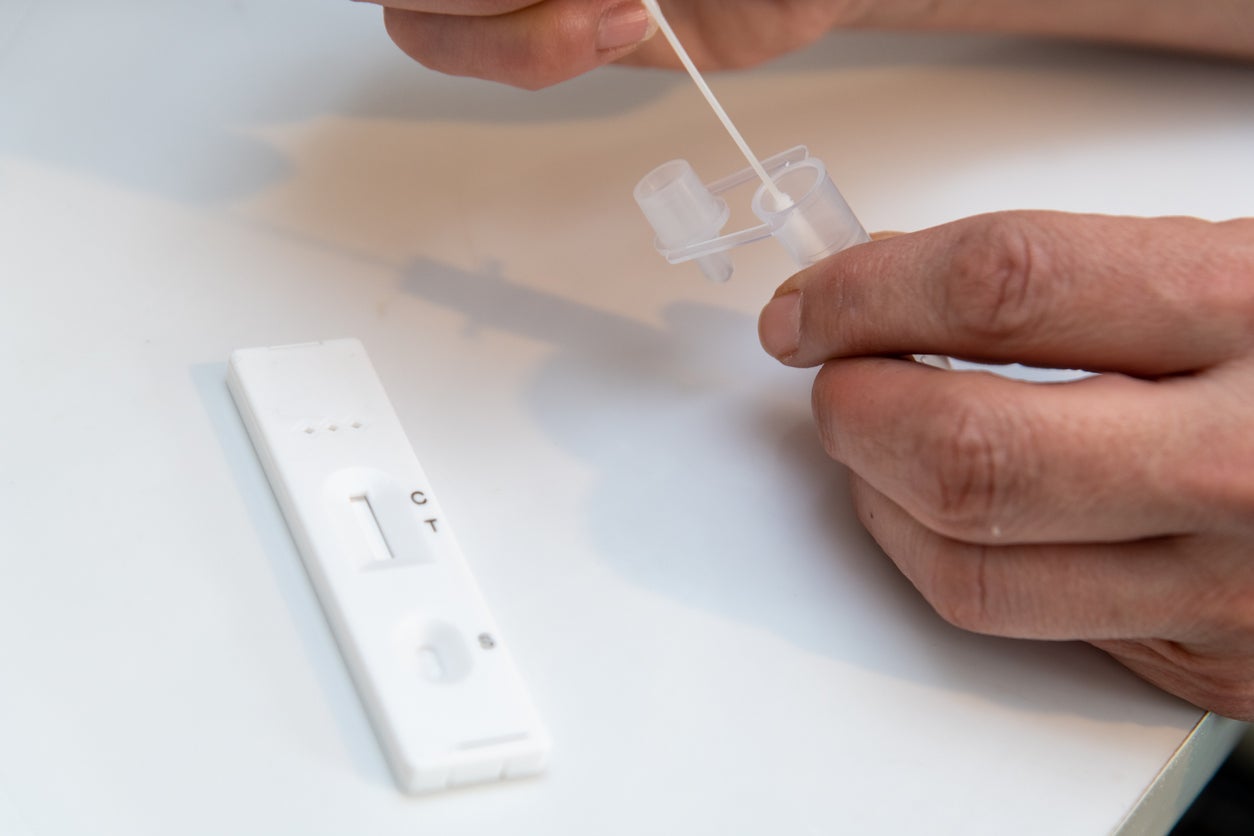Can at-home Covid-19 tests make holiday gatherings safer?
Home test kits for Covid-19 can add a layer of safety and reassurance to holiday gatherings by providing on-the-spot results

Your support helps us to tell the story
From reproductive rights to climate change to Big Tech, The Independent is on the ground when the story is developing. Whether it's investigating the financials of Elon Musk's pro-Trump PAC or producing our latest documentary, 'The A Word', which shines a light on the American women fighting for reproductive rights, we know how important it is to parse out the facts from the messaging.
At such a critical moment in US history, we need reporters on the ground. Your donation allows us to keep sending journalists to speak to both sides of the story.
The Independent is trusted by Americans across the entire political spectrum. And unlike many other quality news outlets, we choose not to lock Americans out of our reporting and analysis with paywalls. We believe quality journalism should be available to everyone, paid for by those who can afford it.
Your support makes all the difference.Can at-home Covid-19 tests make holiday gatherings safer?
Yes, combined with vaccination, home test kits for Covid-19 can add a layer of safety and reassurance by providing on-the-spot results during this second year of pandemic holidays.
“We will be using rapid tests to doublecheck everybody before we gather together,” says Dr Emily Volk, president of the College of American Pathologists, who is planning a holiday meal with six vaccinated family members. “We’ll be doing it as they come in the door.”
Home kits are not as accurate as the PCR tests done in hospitals and at testing sites, Volk says. But they have the advantage of giving results within minutes, instead of days.
Testing kits are available at drugstores without a prescription, and a box with two tests typically costs about $25 (£18.6).
Swabs, testing solutions, and instructions are included, and adults and teens can test themselves.
An adult can test a child as young as two years old. How-to videos on product websites can be helpful.

Most tests require swabbing about a half-inch inside both nostrils, so it may tickle but doesn't hurt. You will get a positive result if the test detects a viral protein in your sample.
Home tests will miss some infections and in rare cases mistakenly indicate an infection. One popular test misses around 15 out of 100 infections - these are called “false negatives” - and gives a false positive result in about one in 100 people who aren’t infected.
Test shortages were widely reported during the last Covid-19 surge, but new options have recently hit the market and major manufacturers such as Abbott Laboratories have ramped up production.
The Centers for Disease Control and Prevention offers other tips on ways to enjoy the holidays safely.
Vaccination remains the best way to protect against coronavirus.
Additional reporting by AP

